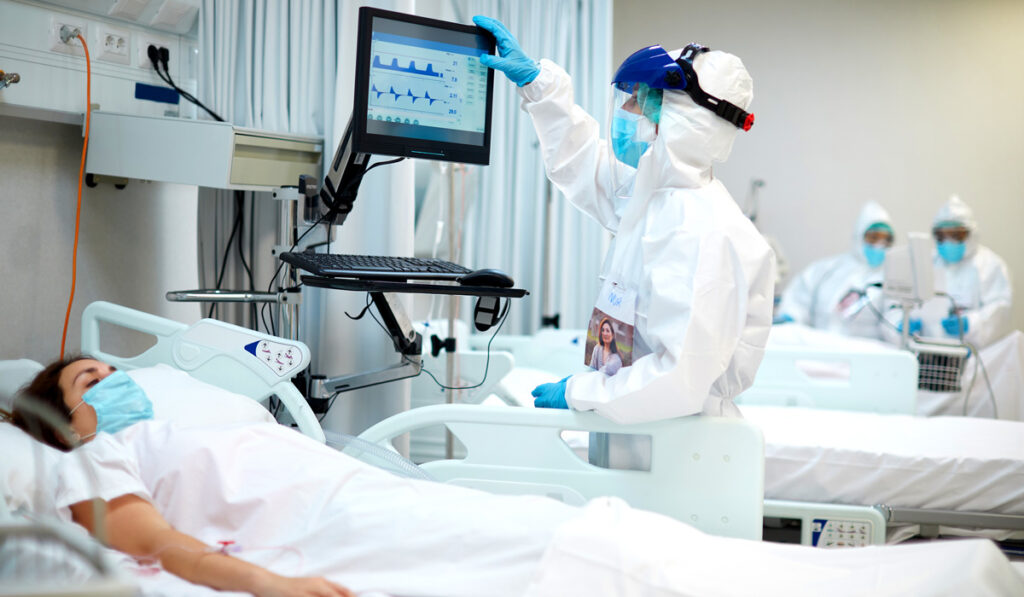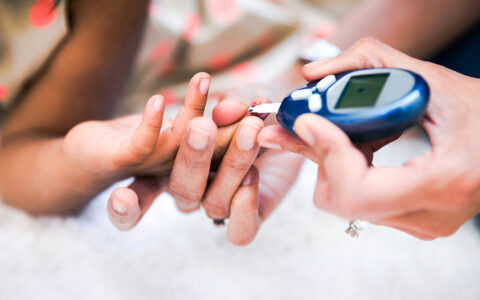Type 1 (T1D) and type 2 (T2D) diabetes patients experience about the same increases in risk for developing more severe illness and for being hospitalized if they develop COVID-19. This is the finding of a new study led by Vanderbilt University Medical Center published in Diabetes Care.
Previous studies of COVID-19 risk and diabetes have not thoroughly considered patients with T1D, says Justin Gregory, M.D., a pediatric endocrinologist at Monroe Carell Jr. Children’s Hospital at Vanderbilt and lead author of the paper.
Answering Parents’ Questions
Gregory said that he felt unequipped to address questions from his patients’ parents about COVID-19 risks. “The information we had a few months ago didn’t speak to questions about letting the kids with type 1 go to school or do virtual school, or play sports or not,” he said.
The research team considered three questions: (1) If a person has T1D, how much more likely are they to suffer serious illness if they contract COVID-19 than a person without diabetes?; (2) How do risks of serious illness or death compare between those with T1D and T2D?; and (3) When those with T1D contract COVID-19, what factors align with greater illness severity or death?
“The information we had a few months ago didn’t speak to questions about letting the kids with type 1 go to school or do virtual school, or play sports or not.”
Findings on Risk
The researchers studied health records of 6,451 COVID-19 patients to identify factors that influenced illness severity; 6,138 patients did not have diabetes, 40 had T1D, and 273 had T2D.
“Compared to patients without diabetes, type 1 patients were 3.9 times as likely to be hospitalized for COVID, and 3.4 times as likely to experience severe illness,” Gregory said.
Roughly the same risk levels were associated with T2D, after other key variables such as age, race, BMI, sex and smoking were taken into account. “The two groups were both at three or four times the risk of someone without diabetes,” Gregory noted.
The team found that certain clinical factors in addition to diabetes, such as hypertension, were associated with more severe illness and death. However, non-clinical factors were more significant. “Clinical factors had a relatively small impact compared to race and insurance status. Black patients and those who had coverage other than private insurance did worse,” Gregory said.
“Clinical factors had a relatively small impact compared to race and insurance status.”
More Caution Needed with T1D
Gregory says the findings reinforce that people with T1D must be vigilant about taking standard COVID-19 precautions: wearing masks, social distancing and avoiding big gatherings.
From a policy standpoint, he says that policymakers should place those with T1D on the highest rung of priority for immunization, alongside patients with T2D. In addition, Gregory says the CDC should heighten how it categorizes T1D among the comorbidities that increase risks with COVID-19.






